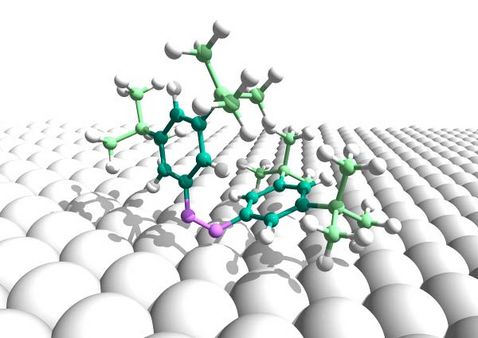Surface Nanotechnology

The ability to adsorb purpose-designed molecules on solid surfaces where they perform functions such as switching, sensing or catalysis is a key capability in the quest for a future molecular nanotechnology. Being identically reproducible, such molecules represent intriguingly well-defined building blocks that offer the vision of an ultimate integration of functional properties. Here, the interaction with the surface is to one end a necessary prerequisite, enabling a degree of localization, ordering or even self-assembly. On the other hand this interaction modifies established properties of the molecular building blocks. The effects can be adverse like steric hindrance or excitation quenching, but also beneficial giving rise to completely new functionality not attainable in gas-phase or solution. Current activities in this focus area center on surface-adsorbed molecular switches as basis component for storage and logic, the formation of functionalized self-assembled monolayers, and the accurate description of dispersive interactions in molecular adsorption at metal surfaces.